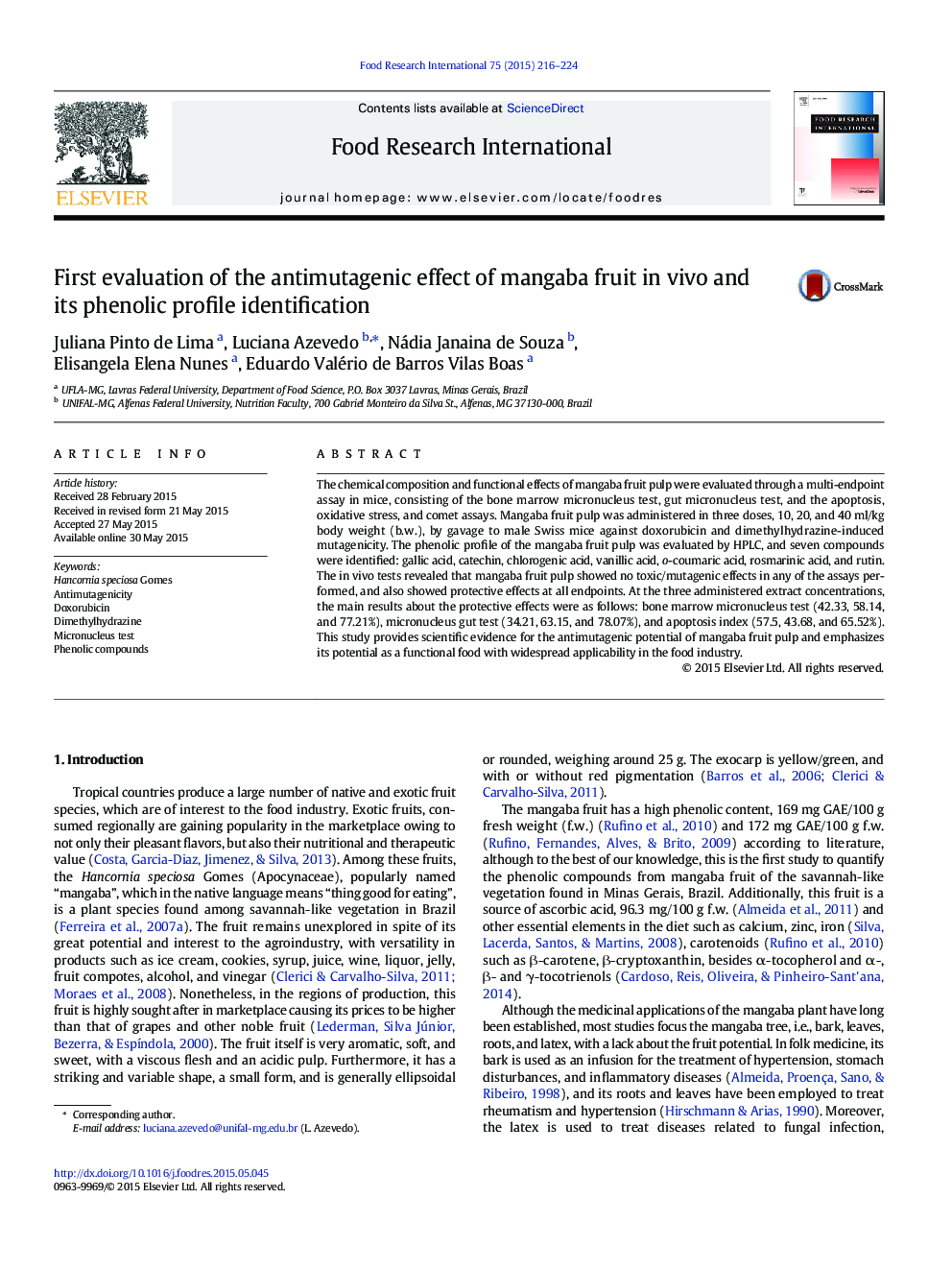| Article ID | Journal | Published Year | Pages | File Type |
|---|---|---|---|---|
| 6395359 | Food Research International | 2015 | 9 Pages |
â¢Mangaba has high antioxidant activity and high levels of ascorbic acid and phenolic.â¢Chlorogenic acid, and rutin, are predominant in mangaba fruit.â¢The mangaba fruit pulp showed no toxic/mutagenic effects.â¢The mangaba fruit showed protective effects in all multi-endpoints evaluated.â¢The mangaba fruit is a functional food and has anticancer antimutagenic potential.
The chemical composition and functional effects of mangaba fruit pulp were evaluated through a multi-endpoint assay in mice, consisting of the bone marrow micronucleus test, gut micronucleus test, and the apoptosis, oxidative stress, and comet assays. Mangaba fruit pulp was administered in three doses, 10, 20, and 40Â ml/kg body weight (b.w.), by gavage to male Swiss mice against doxorubicin and dimethylhydrazine-induced mutagenicity. The phenolic profile of the mangaba fruit pulp was evaluated by HPLC, and seven compounds were identified: gallic acid, catechin, chlorogenic acid, vanillic acid, o-coumaric acid, rosmarinic acid, and rutin. The in vivo tests revealed that mangaba fruit pulp showed no toxic/mutagenic effects in any of the assays performed, and also showed protective effects at all endpoints. At the three administered extract concentrations, the main results about the protective effects were as follows: bone marrow micronucleus test (42.33, 58.14, and 77.21%), micronucleus gut test (34.21, 63.15, and 78.07%), and apoptosis index (57.5, 43.68, and 65.52%). This study provides scientific evidence for the antimutagenic potential of mangaba fruit pulp and emphasizes its potential as a functional food with widespread applicability in the food industry.
Graphical abstractEffects of pulp mangaba fruit against DXR and DMH induction in vivo. MP: mangaba pulp; DXR: doxorubicin; DMH: 1,2-dimethylhydrazine dihydrochloride; MN: micronuclei.Download high-res image (84KB)Download full-size image
